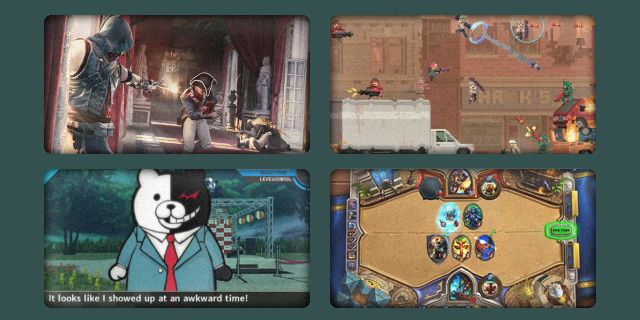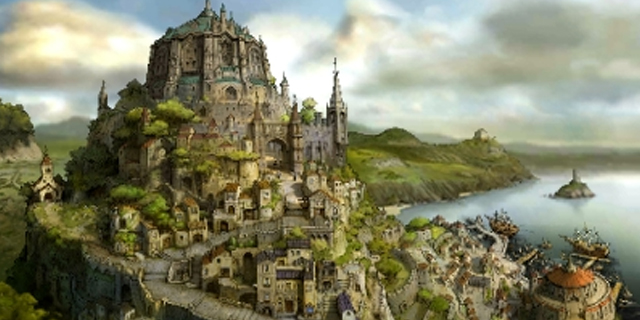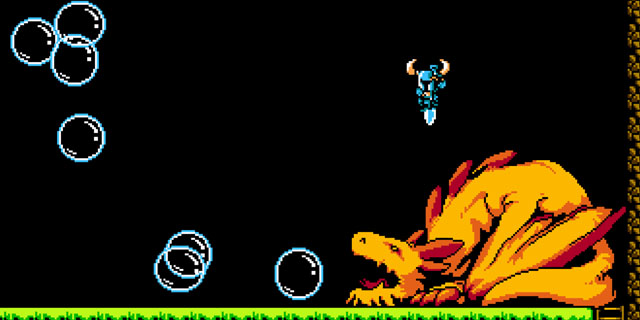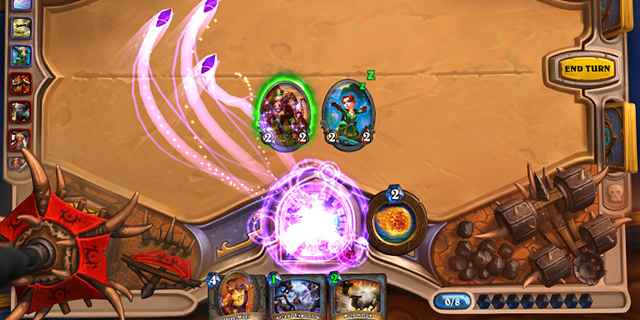
10. Assassin’s Creed: Unity
This game has gotten so much hate from the gaming community this year, some of it admittedly deserved, that it feels strange to say that I really enjoyed it. I don’t like the pirate ship combat and controls in Assassin’s Creed, and I thought that Assassin’s Creed IV: Black Flag was a weak entry (albeit worlds ahead of the abysmal Assassin’s Creed III). In an Assassin’s Creed game, I want a solid city to explore with lots of interesting things to do, as well as some connections to the modern-day struggle between the templars and the assassins. While Assassin’s Creed: Unity completely abandons the modern plot, the city is interesting, and I found Arno’s character to be the best replacement for Ezio the series has found yet. I, luckily, didn’t run into the myriad of technical issues that so many others seemed to experience. If you’re a fan of Assassin’s Creed II, I would implore you to give Unity a chance. It’s not perfect, but it really is a lot of fun.
9. Donkey Kong Country: Tropical Freeze
Retro Studios’ follow-up to the excellent Donkey Kong Country Returns was a fairly safe bet to be great, as the studio’s track record has been pretty stellar and the property is very solid. My expectations were even exceeded, however, as Donkey Kong Country: Tropical Freeze pushes the formula forward in interesting new ways while at the same time delivering tight, challenging, familiar gameplay. The addition of Dixie and Cranky alongside Diddy, with their unique move sets, adds a lot to the types of challenges that Retro could provide as each character has their own unique platforming styles. The best part of the game is absolutely in the tight controls and precision platforming. Nintendo as a company knows platformers, and it consistently puts out the best titles in this genre. Donkey Kong Country: Tropical Freeze continues in that tradition.
8. Bravely Default
The highest compliment I can give to this game is that it is the best Final Fantasy I’ve played in the past five years. Bravely Default actually plays and feels more like that storied franchise than most of its recent releases, and it actually pushed tradition forward with some cool new twists on the classic JRPG formula. I spent so much time this year coming back to Bravely Default to further customize my party, grind some levels and explore more of the compelling world. I’m not opposed to gaming sessions in which I just spend time grinding (I’ve been hooked on some MMOs in the past), but Bravely Default’s options to speed up combat, skip animations and even change encounter rates made the grinding experience the most painless and pleasant I’ve had. This is the grinding game for people who hate grinding. Without the rough repetition of the last third of the game, Bravely Default would have ranked much higher for me, but it’s a testament that it still ended up as one of my top ten.

7. Super Time Force
Super Time Force is the very definition of the word “charm.” It has a personality all its own, with a very over-the-top sense of humor and a fast-paced but still very thoughtful mode of play. The minute-by-minute action of Super Time Force is intense, frantic fun, dodging bullets while trying to use various different attacks to neutralize the threats around you. You end up needing to attempt what basically amounts to a speed run of each level, while still attempting to grab whatever collectibles you can. The decision of when to rewind time and of which character you want to use for each successive moment is actually deeply strategic, and gives the game a level of depth that belies its initial appearance.
6. Lightning Returns: Final Fantasy XIII
Final Fantasy XIII went a long way toward ruining the Final Fantasy franchise. I hate the extreme linearity of it, I hate the confusing story (and the time traveling of the sequel didn’t help), and about the only thing I found interesting at all was the battle system. For some reason I played the sequel and liked it better, so this year I went ahead and played the final episode, Lightning Returns: Final Fantasy XIII. I was shocked. This game addresses many of the issues I’ve had with the series, and while the plot still makes little sense (its better, but not by much), I thought the combat and time-based gameplay was a lot of fun. This game actually does a time-restriction mechanic better than many other titles that have tried it (like Dead Rising or Majora’s Mask). For those that gave the series up after the original Final Fantasy XIII, I would actually encourage them to stay persistent.
5. Far Cry 4
There is so freaking much to do in Far Cry 4 that it is honestly a little overwhelming. One of things I really like about the game (and its predecessor Far Cry 3) is the neat, clean and organized progression interface that shows you so clearly what you’ve completed, what you have left and at what points you will unlock the next achievements and rewards. This one menu screen kept me coming back, as I would always almost be done playing, and then notice that if I find just two more masks I’ll unlock a new gun, or just one more hostage mission for an achievement. It helps that the game allows you to really let your imagination run wild as you tackle the various open-world challenges it presents. The story is a little underwhelming, but it is fully realized by some incredible performances. Troy Baker again proves why he gets the amount of work he does with his masterful performance as Pagan Min. In a year when Ubisoft took a lot of flak for releasing games that many felt were below a certain quality threshold, Far Cry 4 stands above the others.

4. Shovel Knight
I’ll admit it: I’m a nostalgic fool. I can’t help but fall in love with games that harken back to the titles that I used to play in my younger years, and games that do this well, like Shovel Knight, combine my fond memories with some really solid modern style gameplay. The most amazing thing to me about this game is just how “right” they got everything. The art feels like it could have been ripped directly from an NES game, and the music is absolutely perfect, catchy in the exact same way the Mario, Zelda and Mega Man themes were. I thought the gameplay hit a nice balance between being overly easy and impossibly difficult, and I really enjoyed the exploration aspect the game introduced by adding lots of secret areas to each level. I worry that this game might have been overlooked due to its style and feel, but I think it has a very broad appeal and I would encourage everyone to try at least the first two levels to form their opinion.
3. Middle-earth: Shadow of Mordor
I had absolutely no idea how much I would enjoy Middle-earth: Shadow of Mordor. It was a game I had earmarked to play at a later time when I could find it at a discount. I’m not a huge Lord of the Rings guy, so I never gave the game the serious consideration it deserved. It kept getting buzz before release as being for Lord of the Rings what Arkham Asylum was for Batman, but that just wasn’t enough to sell me. What eventually pushed me over the edge was the non-stop talk I heard from everyone around me, so I finally decided to try it. Within the first two hours, I was both stunned and absolutely hooked. The exploration feels great, the combat is silky-smooth and the atmosphere actually did what I thought wasn’t possible: it got me excited about Lord of the Rings. The Nemesis system is incredible, and is actually something that feels brand new in a video game, not purely just an iteration on previously established ideas.
2. Danganronpa: Trigger Happy Havoc
I’m a relative newcomer to the visual novel genre. I started a few years ago with the Ace Attorney series, and then it was just a little over a year ago that I played 999: Nine Persons, Nine Hours, Nine Doors. I thought nothing could match the intrigue and tension that 999 provided, and I remember being hooked to the grim setting and color characters. Danganronpa: Trigger Happy Havoc recreated the feelings I had with that game, and then far surpassed them. The simple premise of a bunch of people trapped and forced to get away with murder to escape is intriguing, and is executed masterfully as the tale unfolds. There were quite a few sessions I had when the only reason I stopped playing was because the battery light on the Vita signaled that I had to. I enjoyed the light puzzle segments, but they were really just a means to an end as I just kept wanting to push further in the story to find out what happened. Even with its cartoony visuals, Danganronpa manages to be creepy in a way that some horror titles can’t match.

1. Hearthstone: Heroes of Warcraft
Someone help me: I can’t… stop… playing… Hearthstone! I skipped the beta for this title completely and gave it a try on a whim in April when it officially released. Almost immediately, I was hopelessly addicted. I think the biggest draw for me is a chance to be highly competitive in a major multiplayer game, one that is quickly reaching elite level of fandom. I have always been drawn to these titles, but before Hearthstone, nearly all of them required lightning-fast twitch reflexes. I can hold my own in games like StarCraft, Call of Duty and Counter-Strike, but when the play reaches the truly elite level, I’ve found that I just don’t have the time needed to develop the necessary skill set to excel. With the bite-sized play chunks and very cerebral nature of Hearthstone, however, I feel like I have a chance to play at the highest levels, and this thought is intoxicating. The deep strategy with slight random elements makes the game feel like a cross of chess and poker, and I love trying to out-guess my opponents while simultaneously hoping I draw the right card at the right time.



















